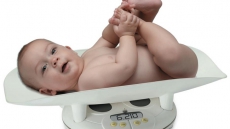How often do you want to kill that itchy feeling in your ears? Well if we believe researchers, tickling your ears can actually improve the health of your heart!
When they applied electrical pulses to the tragus - the small raised flap at the front of the ear immediately in front of the ear canal - they found that the stimulation changed the influence of the nervous system on the heart by reducing the nervous signals that can drive failing hearts too hard.
The technique works by stimulating a major nerve called the vagus that has an important role in regulating vital organs such as the heart.
The researchers applied electrodes to the ears of 34 healthy people and switched on the standard TENS (Transcutaneous electrical nerve stimulation) machines for 15-minute sessions.
They monitored the variability of subjects' heartbeats and the activity of the part of the nervous system that drives the heart.
"The first positive effect we observed was increased variability in subjects' heartbeats. We found that when you stimulate this nerve, you get about a 20 percent increase in heart rate variability," said lead researcher Jennifer Clancy from University of Leeds' school of biomedical sciences.
"You feel a bit of a tickling sensation in your ear when the TENS machine is on but it is painless. It does have the potential to improve the health of the heart and might even become part of the treatment for heart failure," claimed Jim Deuchars, a professor of systems neuroscience at University of Leeds.
The second positive effect was in suppressing the sympathetic nervous system, which drives heart activity using adrenaline.
"We measured the nerve activity directly and found that it reduced by about 50 percent when we stimulated the ear. This is important because if you have heart disease or heart failure, you tend to have increased sympathetic activity," Clancy explained.
A lot of treatments for heart failure try to stop that sympathetic activity - beta-blockers, for instance, block the action of the hormones that implement these signals.
"Using the TENS, we saw a reduction of the nervous activity itself," researchers noted.





